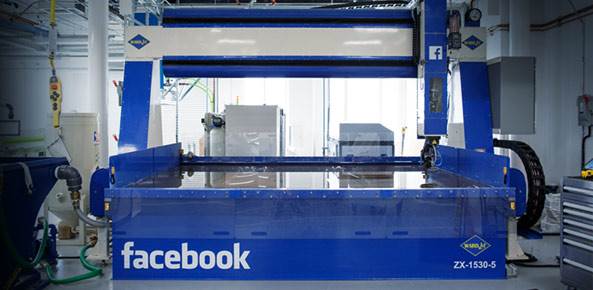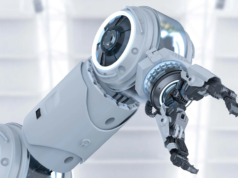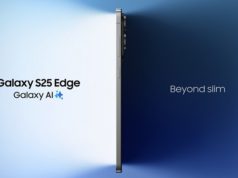Today, Facebook officially took the wraps off what co-founder and CEO Mark Zuckerberg called the “biggest and most advanced hardware lab” in the company’s history.
Designed for Facebook engineers and designers working on everything from improved data center equipment to virtual-reality cameras, the Area 404 lab covers 22,000 square feet, “the size of half a football field,” at the company’s offices in Menlo Park, Calif., Zuckerberg said. The facility takes its name from the standard HTTP 404 error message delivered when a requested Web page is not found by the server being queried.
The lab was “named for our teams wanting a space just like this one, but one wasn’t found; now it’s found, and we lovingly refer to the space as Area 404,” Facebook’s Spencer Burns and Mikal Greaves wrote today on the company’s Code blog.
Aimed at ‘Connecting the World’
Despite being known first as a software-heavy social networking site, Facebook also puts significant amounts of research into hardware of many kinds such as server and data center technology, virtual reality, holographic computing, wireless networking, drones and more. For example, through Oculus — the virtual-reality firm it purchased for $ 2 billion in 2014 — Facebook has developed and taken to market the Oculus Rift VR headset, which began shipping to consumers this year.
“Over the next 10 years, we’re building everything from Oculus headsets to solar-powered planes,” Zuckerberg wrote today in a post on his Facebook page. “We’ve always had labs for each team, but our new lab will be a hub where engineers can work together to make even faster progress towards connecting the world.”
Ahead of Area 404’s debut, Facebook yesterday gave journalists a tour of the new facility. The lab houses a variety of highly specialized and, in some cases, potentially dangerous equipment such as a water jet that can cut through sheets of steel or stone several inches thick.
“Area 404 houses one of the few rooms at Facebook Mark Zuckerberg isn’t allowed in,” a report in TechCrunch noted today. “It’s too unsafe despite all the precautions, certifications, and training Facebook offers its hardware engineers.”
Other lab equipment, such as an electron microscope and a CT scanner, will enable Facebook’s engineers to closely study components for failure analysis, according to Zuckerberg. “All this gear was so heavy that we had to remove the floor of the building and drill down to the bedrock to put in new foundation,” he said.
‘So Much to Do’
As Facebook has moved into new areas of technology over the years, it has opened up a number of hardware labs focused on specific types of research, noted Burns, a computer numerical control model maker, and Greaves, a mechanical/power manager.
“These labs have all served their respective teams well, but over time we started to see that when engineers from different teams came together and shared their expertise, we could make even faster progress on the projects they were working on,” they said in their blog post. “We wanted to create more opportunities for these teams to come together; we needed a big, open space to complement our custom labs. So we built one, and we call it Area 404.”
The new lab offers space for both electrical engineering testing and prototype development, Burns and Greaves said. The work taking place there will help Facebook pursue its long-term technology goals, including new offerings in artificial intelligence, social virtual reality, satellites and laser technology, among others, they said.
“We’re working hard to make the world more open and connected, and as shared in our 10-year roadmap, that includes building next-generation hardware — hardware that creates smarter, more immersive experiences and systems that will connect the world,” Burns and Greaves noted.
“I’m looking forward to seeing everything we create,” Zuckerberg said. “There is so much to do and we have some exciting times ahead!”







![[CES 2026] An Entertainment Companion for Every Moment Seen](https://loginby.com/itnews/wp-content/uploads/2026/01/1768923629_CES-2026-An-Entertainment-Companion-for-Every-Moment-Seen-100x75.jpg)